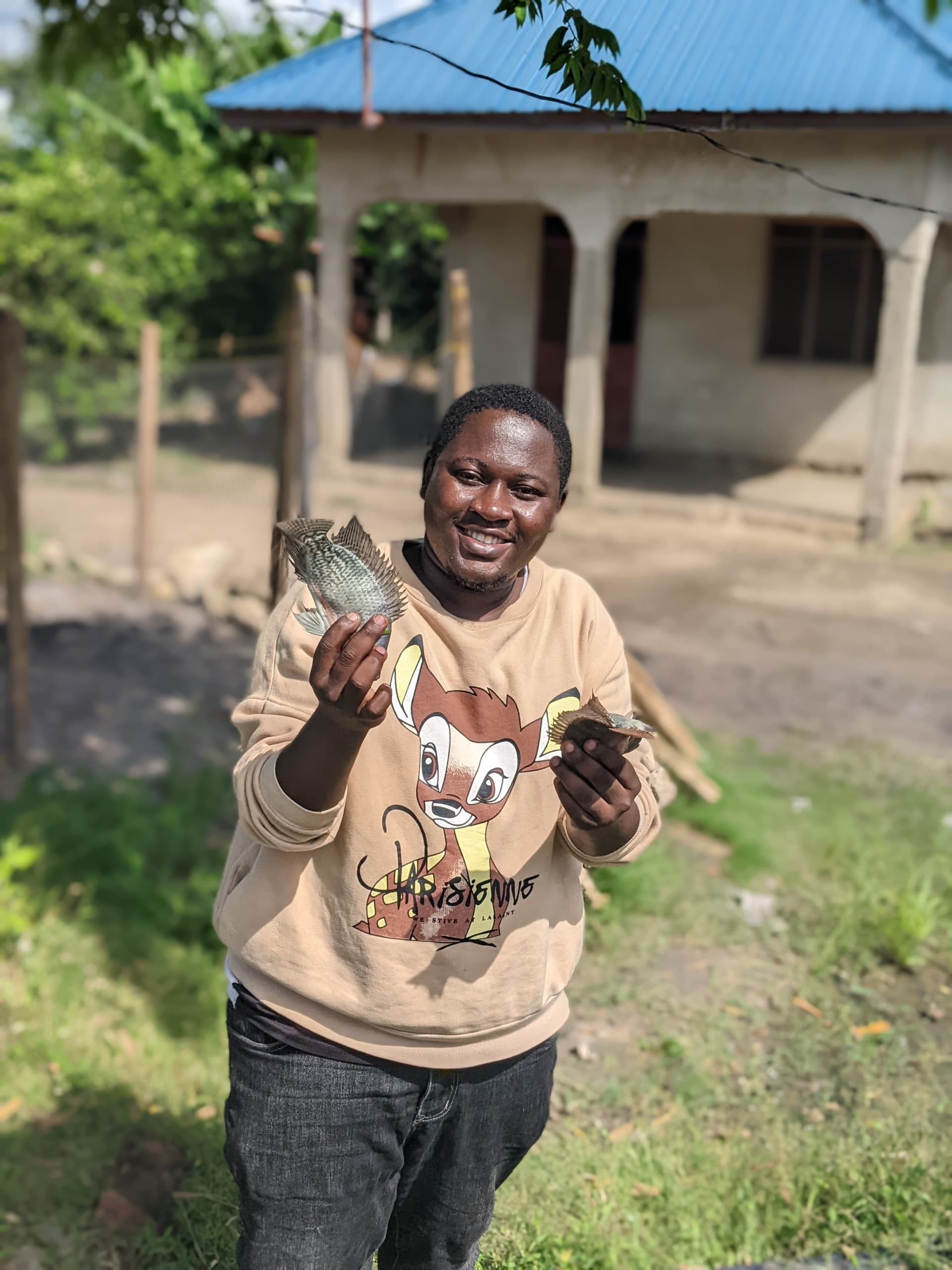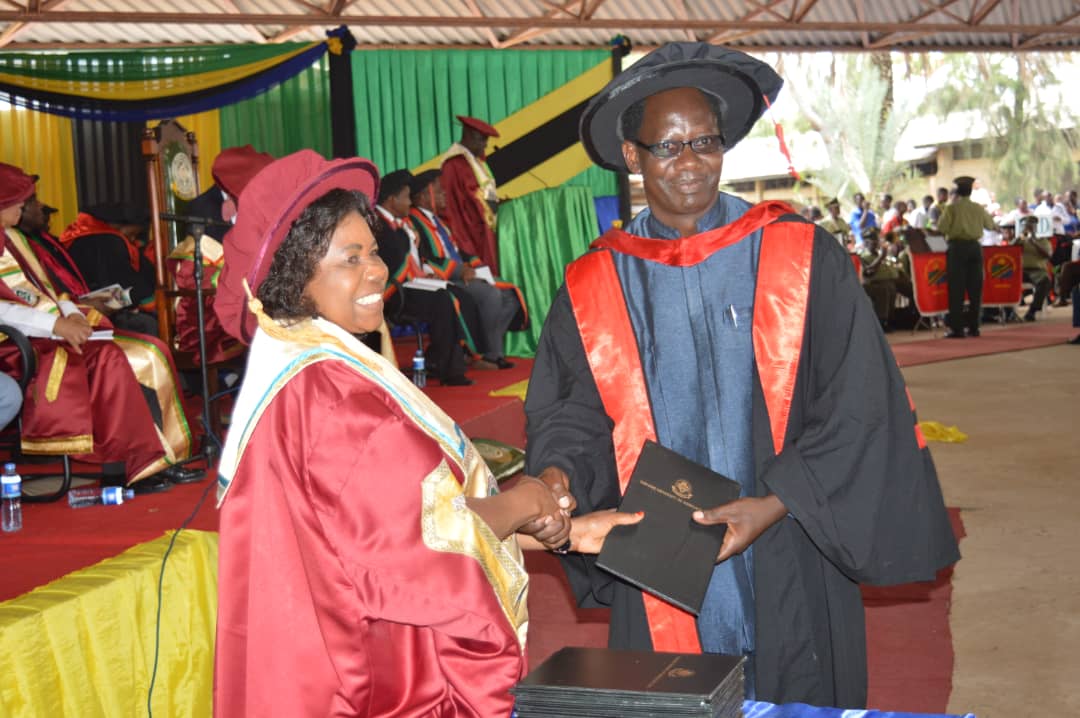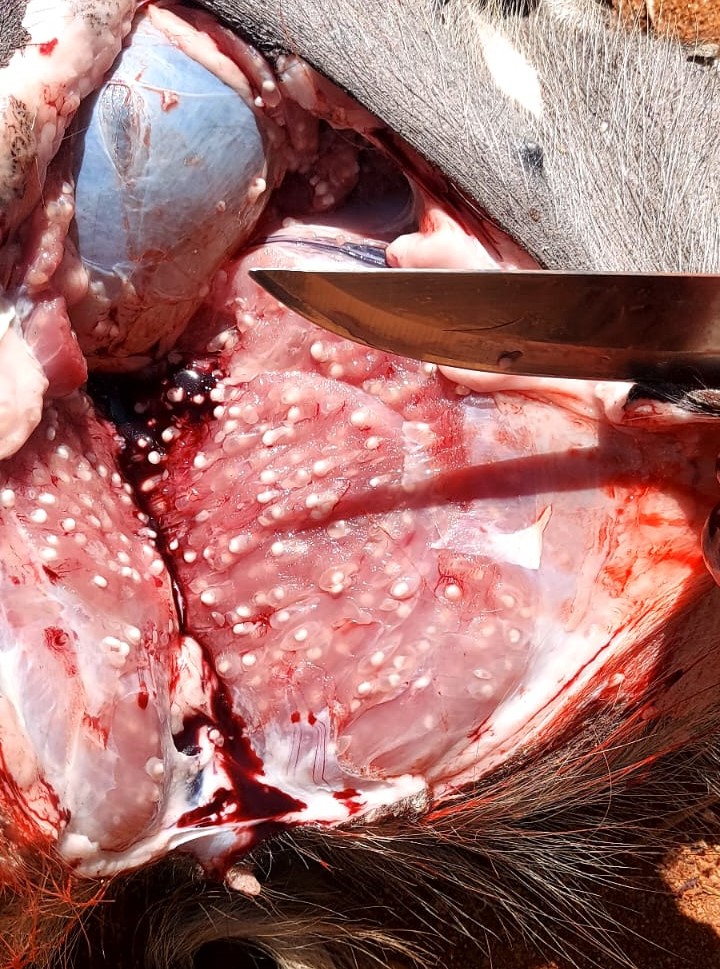Application Technology Workshop Participants in Rwanda: Dr. Elly Ligate (in the front line, third position from the left, and Prof. Yasinta Muzanila (in the front line, first position from the right)
Prof. Yasinta Muzanila and Dr. Elly Ligate from the Department of Biosciences of the Sokoine University of Agriculture attended the Kigali International Workshop on Application Technology and Sustainable Development of Developing Countries held from 21 to 24 February 2023. The workshop was organized by the United Nations Department of Social Economic Affairs (UNDESA) in collaboration with the National Engineering Research Centre for Juncao Technology at Fujian Agriculture and Forestry University (FAFU) in China and the Ministry of Agriculture and Livestock of Rwanda. This partnership aimed to facilitate the exchange of knowledge and expertise in sustainable agriculture practices and the transfer of Juncao technology to developing nations.
The collaboration among UNDESA, FAFU, and the Ministry of Agriculture and Livestock of Rwanda exemplifies the significance of forging partnerships and leveraging expertise and resources to achieve shared objectives. These partnerships play a pivotal role in addressing global challenges such as poverty, hunger, and environmental degradation by granting access to knowledge and resources that support sustainable development.
The capacity-building workshop held in Kigali, Rwanda, played a crucial role in enhancing the agricultural capabilities of developing countries by facilitating the transfer of Juncao technology. Representatives from six African countries (Tanzania, Rwanda, the Democratic Republic of Congo, Eritrea, Nigeria, and Zimbabwe) came together to share knowledge, develop skills, and strengthen networks to promote the adoption of Juncao technology. The workshop was organized within the framework of UNDESA, which aims to assist interested governments in translating policy frameworks developed in UN conferences and summits into regional-level programs. By providing technical assistance and building national capacities, UNDESA contributes to the advancement of sustainable agriculture practices and economic growth in developing nations.

Juncao grass
For the participating African countries, the workshop offered a unique opportunity to learn from sustainable agriculture experts and acquire practical skills for implementing Juncao technology. Strengthening their capacity to adopt and implement this technology enables these nations to effectively combat poverty, promote productive employment, and enhance food security for their populations. The four-day capacity-building workshop served as a valuable platform for representatives from invited African nations to enhance their capabilities in sustainable agriculture practices and foster development in their respective countries.
The primary objective of the workshops was to enhance and sustain the capacities of states and societies in designing and implementing strategies to mitigate existing social, economic, and environmental crises, as well as emerging challenges. Specifically focusing on capacity-building activities related to Juncao technology and traditional systems, the workshops highlighted their contributions towards achieving the Sustainable Development Goals (SDGs) by 2030. The workshops aimed to promote the integration of the 2030 Agenda for Sustainable Development and the SDGs into national sustainable development planning frameworks. Through interactive learning models, the workshops facilitated the sharing of lessons learned and best practices to enhance capacity and align with the SDGs in the 2030 Agenda.
The Juncao technology project served as the central theme of the workshops, addressing critical issues for developing countries such as poverty eradication, hunger reduction, renewable energy utilization, development promotion, environmental protection, and climate change adaptation. Through south-south cooperation, the transfer of Juncao technology to developing nations enables farmers to cultivate various nutritious mushroom varieties, establishing a cost-effective, commercial-scale mushroom cultivation industry and offering sustainable livelihood opportunities for thousands of individuals. Furthermore, Juncao technology can be utilized to produce livestock feed and methane gas and mitigate soil erosion to combat desertification.

Dr. Elly Ligate: Mushroom produced using Juncao Technology
The workshops also provided valuable insights into the implementation of Juncao technology in specific countries. For example, in Tanzania, participants learned that mushroom production is a profitable business that creates jobs and generates income, particularly in areas where other forms of agriculture may be limited. Factors to consider when starting a mushroom production business include selecting suitable locations, choosing appropriate mushroom species, acquiring necessary equipment and supplies, and investing in training. It was also important to consider local market demand, product differentiation strategies, and value addition through processing and packaging. The workshops highlighted various methods of mushroom production using locally available materials and the application of Juncao grass in preserving and controlling soil erosion. Additionally, the workshops emphasized the recognition and support of Juncao technology by government authorities, private partners, and international organizations and institutions.
In conclusion, Juncao technology has the potential to bring numerous benefits to developing countries, including job creation, food security, environmental protection, and economic growth. Through the implementation of Juncao technology, countries like Tanzania can address challenges such as malnutrition, environmental degradation, and conflicts between farmers and livestock keepers. The commitment of individuals like Professor Yasinta Muzanila and Dr. Elly Ligate from Sokoine University of Agriculture in Tanzania, along with other stakeholders, is crucial in disseminating knowledge and skills acquired during workshops, raising awareness about Juncao technology, and promoting its adoption and implementation. By leveraging Juncao technology, countries can foster sustainable agriculture, improve livelihoods, and contribute to the achievement of the SDGs in the 2030 Agenda.




